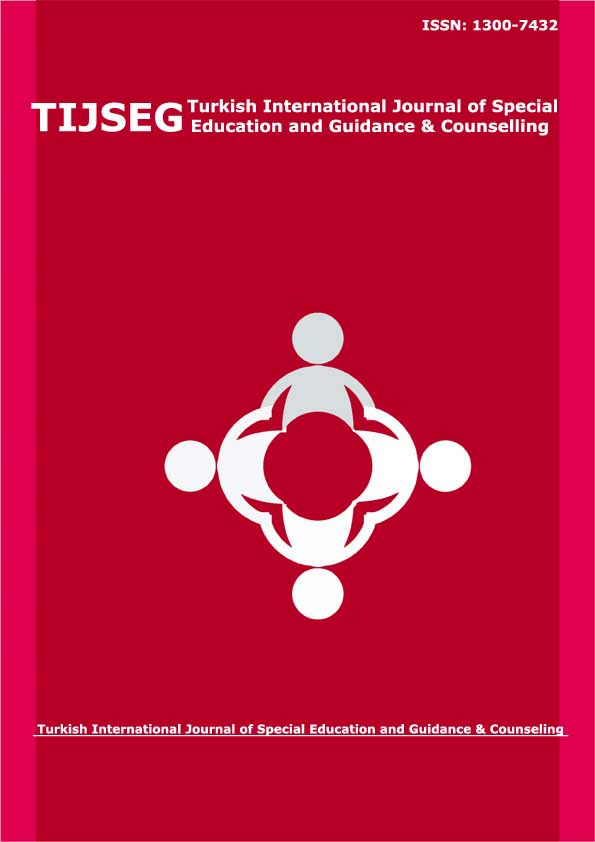
Turkish International Journal of Special Education and Guidance & Counselling
Yazarlar: Hussien Alhadi Mohamed Wadi, Behbood Mohammadzadeh
Konular:
Anahtar Kelimeler:Student teacher’s Foreign Language anxiety,Libyan Students
Özet: This study attempts to reveal the sources of foreign language anxiety among EFL student teachers in Libya. The study was conducted to address 1) the level of foreign language anxiety among Libyan student teachers, 2) the sources of foreign language anxiety among Libyan student teachers, and 3) the differences in the sources of FLA between student teachers with different levels of anxiety. The participants were 152 Libyan student teachers (male = 47 and female = 105) studying ELT in Libya. Horwitz’s (1996) Teacher Foreign Language Anxiety Scale (TFLAS) was the primary tool and an open-ended questionnaire designed by the researcher was the secondary tool for data collection. Descriptive methods including percentage mean, SD, and t-tests were utilized to analyse the data. The findings showed that student teachers in Libya have a high level of foreign language anxiety. Their classification led to only two levels of anxiety: moderately anxious (averages between 2.50 and 3.49), and highly anxious (averages between 3.50 and 5) groups. Moreover, all the items included in TFLAS were responsible for making these teachers anxious. These sources were generally related to speaking anxiety, teachers’ beliefs about teaching and learning, classroom procedures, teaching anxiety and teachers’ proficiency level. The degree of sources of anxiety in the moderately anxious and highly anxious groups were found as significantly different suggesting that the more students experience any of the sources of teacher FLA, the more apprehension they experience. The study had useful implications for teachers and practitioners in this field. It was suggested that factors including a friendly learning and teaching atmosphere, having a good proficiency in English, getting enough training in teaching practices, and receiving support from the institution can contribute to the reduction of teacher anxiety.